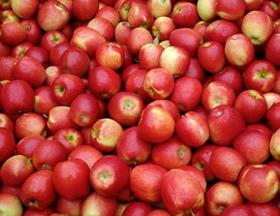
With the price of domestically grown apples on the rise, exporters can look to the Chinese market with a heightened sense of competitiveness, according to USDA GAIN report.
Average farm gate prices for Fuji apples hit a record high of RMB8.47 per kg in China during October last year, up 40 per cent on the corresponding period of the previous market year (ending 31 June 2014). The USDA report attributed the price rise to a fall in production in the western provinces of Shaanxi and Gansu, where low temperatures and heavy rains hampered the spring blossom.
China’s overall apple production is anticipated to fall 5 per cent to 37.8m tonnes over the 2014/15 market year (July-June). Consequently, the USDA forecasts apple imports to rise to 40,000 tonnes over this time period, up by more than 60 per cent on 2013/14.
The market conditions look favourable for the Washington apple industry, which won back Chinese market access in October last year after resolving quarantine issues with officials from the Asian nation. Prior to its suspension in 2012, the US supplied close to 50 per cent of China’s apple import market, predominately Red and Golden delicious varieties from Washington State.
To help protect domestic production, a number of regional and provincial governments in China have set up development plans for their local industries.
The Yantai government in the Shandong province has published a series of guidelines for maximizing grower and post harvest returns. Some of the key points outlined in the document include the facilitation of high density planting systems, continued support of the e-commerce market, and the goal of expanding production to 213,000ha by 2020.
The Yantai region currently produces around 4.2m tonnes of apples over 176,000ha, with growers supplying more than 40 per cent of the total production in Shandong, China’s second largest apple growing province.
The provincial government of Shaanxi has also issued it’s own set of fruit growing regulations, aimed at improving quality standards. Under the regulations, local authorities will have the power to enforce production standards, such as minimum dry-matter levels, and call for the establishment of a testing and traceability systems.



